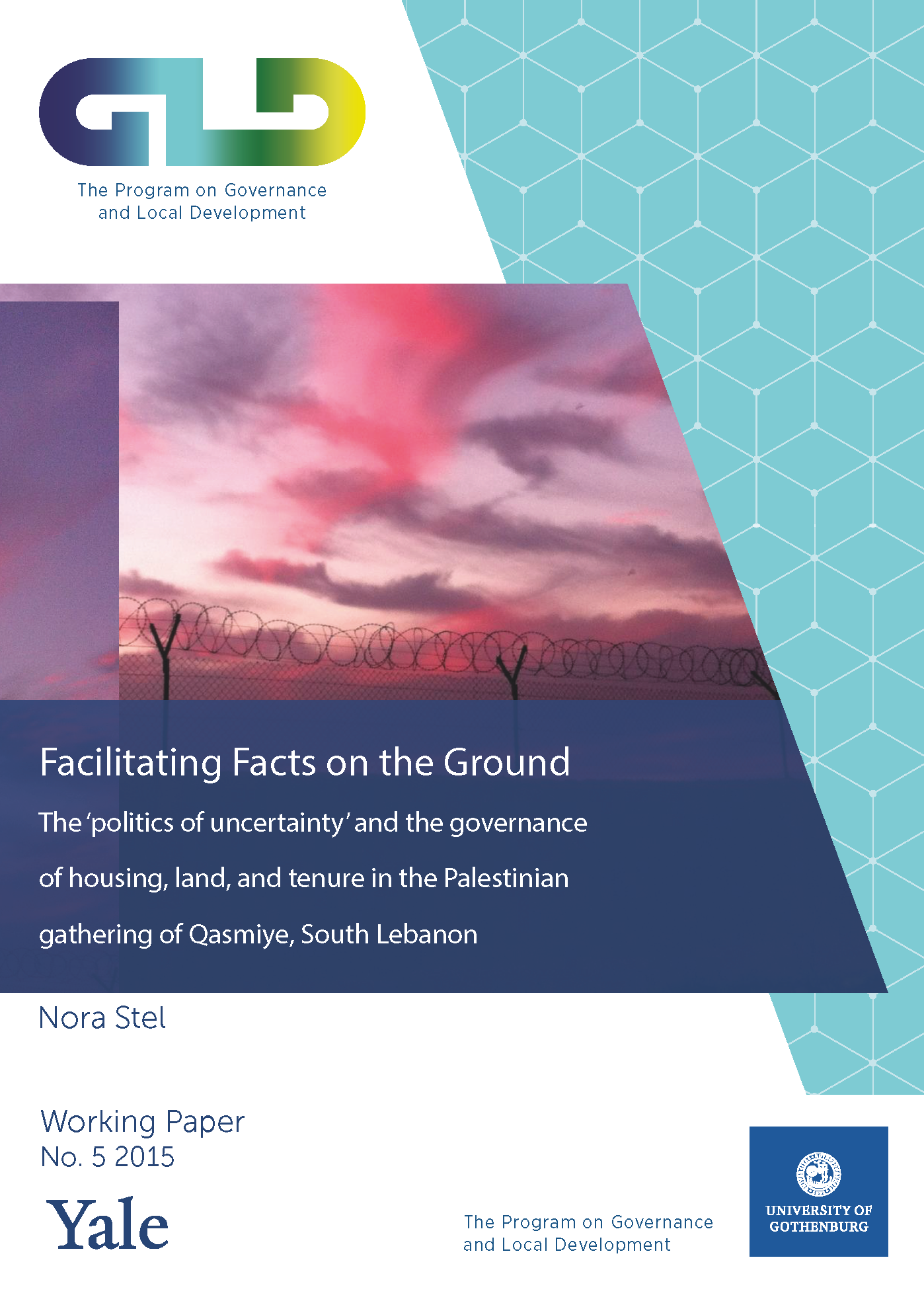No.5 Facilitating Facts on the Ground: The "politics of uncertainty" and the governance of housing, land, and tenure in the Palestinian gathering of Qasmiye, South Lebanon
Nora Stel
Abstract
Lebanese and Palestinian authorities unyieldingly proclaim that avoiding naturalization (tawteen) and realizing return (‘awda) is their main priority. This places the Palestinian refugee community in Lebanon under a state of exception in which institutional ambiguity characterizes governance, because any form of normalization and formalization is considered a prelude to tawteen and a threat to ‘awda. This uncertainty is particularly poignant in Lebanon’s unofficial camps, or “gatherings.” Palestinians living in the gatherings do not fall outside the protection regime of the Lebanese state merely because they lack citizenship. They are also partly excluded from UNRWA’s service mandate because they do not reside in official camps. The consequences of this institutional ambiguity are especially pertinent in the governance of housing, land, and tenure. Institutional ambiguity complicates construction and exposes residents of the gatherings to eviction from their properties. At the same time, it determines the coping mechanisms available to residents to deal with these predicaments. In the absence of formal entitlements related to citizenship or camp-residence, inhabitants of the gatherings rely on informal and politicized strategies geared toward maintaining “facts on the ground.” My case study of the governance of property rights in Qasmiye gathering documents how the state of exception in Lebanon’s Palestinian gatherings is upheld by what can be called a “politics of uncertainty”: both Lebanese and Palestinian authorities deliberately maintain the institutional ambiguity of the gatherings. As such, the paper contributes to understanding the endurance and reproduction of marginalizing governance practices—in the specific context of Lebanon’s Palestinian gatherings, but also with reference to other protracted refugee populations and inhabitants of informal settlements across the Arab world.
